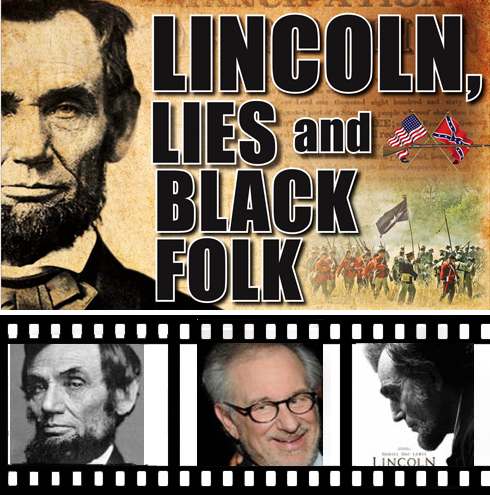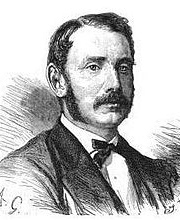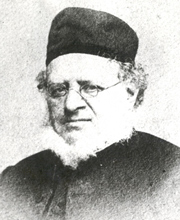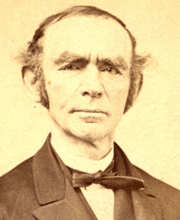Lincoln, lies and Black folk (Pt. 2)
By The NOI Research Group | Last updated: Dec 6, 2012 - 1:10:27 PMWhat's your opinion on this article?
A Viewer’s Guide to Steven Spielberg's, 'Lincoln & The American Civil War'
Pt2 - Plenty of Negroes, But Why No Jews?
-Read part one of this two part series

'Spielberg wants to reinforce the fiction that a single document exonerated America and ended forever a system by which his people grew so wealthy.' |
(FinalCall.com) - In his movie Lincoln, director Steven Spielberg presents a critical period of the Black Holocaust as he feels Blacks ought to understand it. But he is no historian. The Jewish Spielberg has meticulously filmed and archived the stories of Jewish Holocaust survivors for his Shoah Foundation in order to preserve the accuracy of their experiences.

|
This is not an oversight. Spielberg employs top historians and researchers to ensure the accuracy of his product and to ensure that his race is represented with dignity and respect. Lincoln the movie is about the birth of the 13th Amendment, a Constitutional decree that was purported to be the “end of slavery.” But just as with the “All-Men-Are-Created-Equal” part of the Declaration of Independence, the unlucky 13th was simply ignored—and slavery continued unabated in other forms. When hostilities ceased, both sides quickly reconciled and unified to put Blacks back onto plantations in a far more effective economic system than slavery—namely, sharecropping, debt peonage, and convict labor.

|
Spielberg wants to reinforce the fiction that a single document exonerated America and ended forever a system by which his people grew so wealthy. Take Spielberg’s own Hollywood for example. It is called by Jewish scholar Neal Gabler “An empire of their own”—a reference to the Jewish moguls who ran all the major studios. Hollywood is the product of investment by the notorious banking house Lehman Brothers. At one time in the 1850s the immigrant Mayer Lehman was appointed by the governor to be in charge of ALL the cotton in Alabama—which meant he was in charge of the state’s Black African slaves. His Jewish family generated so much money from slave labor that they adamantly fought against Lincoln’s attempts to end Black slavery. With their cotton-trading profits they moved to New York and got into investment banking, ultimately financing the studio “empires” of Steven Spielberg and his forbears.

Frederic Erlanger
|
Back to the movie: The opening of Spielberg’s Lincoln is a brutal hand-to-hand combat scene in the later stages of the Civil War. But without the investment of a Jewish banker named Emile Erlanger the latter part of the war would never have happened. In March of 1863 (3 months after the Emancipation Proclamation), Erlanger loaned $7 million dollars to the Confederacy (about $125 million in today’s money), without which the South would have been unable to pay or feed or clothe its troops or buy its warships, its weapons and its bullets. They would have had to surrender. Erlanger expected to get low-cost cotton from the South if the rebels were successful at maintaining slavery. It is safe to say that fully half of the 700,000 soldier deaths might have been prevented if the Confederacy had not had the funds to continue the war. Never mind that many Africans would not have continued to be imported as slaves if this bloody period had been cut short. Spielberg ignored those unfortunate Judaic details.
But there is more: Erlanger made the deal through a Jewish lawyer and slaveowner from Louisiana named Judah P. Benjamin, who served as the Vice President of the Confederacy as well as its Secretary of War! He was known as the “brains of the Confederacy.” So significant was Benjamin to the slaveholders that his picture was on their money!

|
And there is more: Florida senator David Yulee didn’t make the cut either. He was the first Jewish senator in American history—and a vociferous supporter of slavery and an aggressive promoter of Indian “removal.” In 1861, Yulee gave the first speech in the Senate to announce the secession of a Southern state.
Other notables missing from the movie are August Belmont, a Jewish New York banker who was the chairman of the Democratic Party. He was the campaign manager of Stephen A. Douglas, Lincoln’s pro-slavery opponent in his last election. Belmont decried abolitionism, denouncing what he called Lincoln’s “fatal policy of confiscation and forcible emancipation.” Another important Jewish American was the highest-paid clergyman in America, the New York-based Rabbi Morris Raphall, who aided and comforted the slaveholders by publicly proclaiming that God Himself supported slavery! When Rabbi David Einhorn said that Blacks should be treated better, he was run out of his Baltimore synagogue in the middle of the night—by his own Jewish congregation!
Then there were those Jewish merchants who smuggled the valuable cotton out of the South even though Lincoln had ordered it blockaded. Their illegal operations gave the South the money it needed to fight the Union. There were so many of them doing so much damage to the Union cause that General Ulysses S. Grant tried to expel all the Jews from the region! These slavery-supporting Jewish smugglers didn’t make it into Spielberg’s movie either.

Rabbi Morris Raphall
|
Spielberg wants us to believe that Blacks were President Lincoln’s main problem, but Lincoln had lots of trouble with the Jews of his time. An official of Lincoln’s government actually deemed the main Jewish organization, the B’nai B’rith, to be a “disloyal organization” that “help[ed] the traitors.” When Salomon de Rothschild, a member of the biggest banking family in the world, showed up in America, he said that if he were an American he would be a “Staunch Slavery Man,” and he urged his family to help the Confederacy. And though Spielberg presents a grandfatherly Lincoln as an Aesopian storyteller, Rothschild disagreed and denounced him as having “the appearance of a peasant [who] can only tell barroom stories.”
Jewish women were equally disdainful of the President, as scholar Albert Mordell noted: they “were more virulent in their hatred of Lincoln and more fanatical in upholding the Confederacy than the men.” In fact, Jews were so fanatical that another Jewish scholar was moved to ask, “What sociological phenomena would lead the Southern Jew to fight so fervently for the principle of slavery?

Rabbi David Einhorn
|
The answer to that question is not in the movie Lincoln, but it is in the Jewish Encyclopedia: “[T]he cotton-plantations in many parts of the South were wholly in the hands of the Jews, and as a consequence slavery found its advocates among them.” Roberta Feurlicht, in her book Fate of the Jews, frankly concluded: “Not only were a disproportionate number of Jews slave owners, slave traders, and slave auctioneers, but when the line was drawn between the races, they were on the white side.”
So it is probably understandable why Steven Spielberg’s movie about the purported end of Black slavery had to be made without Jewish characters. The carefully crafted but totally false image of Jews as helpers of Blacks would surely have been forever jeopardized. Their absence from any participation in Lincoln’s efforts to achieve Black freedom is probably the only historically accurate feature of the film.
And since Spielberg’s 2012 film must still portray Blacks only as servants and maids and butlers and carriage drivers and concubines, maybe Blacks ought to reflect on and consider Lincoln’s most profound proclamation. He said: “The aspiration of men is to enjoy equality with the best when free, but on this broad continent not a single man of your race is made the equal of a single man of ours….I cannot alter it if I would….It is better for us both, therefore, to be separated.”
Now, that would make a great movie.
(Find more on this topic and other writings from Nation of Islam Research Group online at http://www.noirg.org, join the conversation on FaceBook and Twitter @ NOIResearch)
INSIDE STORIES AND REVIEWS
-
-
About Harriett ... and the Negro Hollywood Road Show
By Rabiah Muhammad, Guest Columnist » Full Story -
Skepticism greets Jay-Z, NFL talk of inspiring change
By Bryan 18X Crawford and Richard B. Muhammad The Final Call Newspaper @TheFinalCall » Full Story -
The painful problem of Black girls and suicide
By Charlene Muhammad -National Correspondent- » Full Story -
Exploitation of Innocence - Report: Perceptions, policies hurting Black girls
By Charlene Muhammad -National Correspondent- » Full Story -
Big Ballin: Big ideas fuel a father’s Big Baller Brand and brash business sense
By Bryan Crawford -Contributing Writer- » Full Story






 Click Here Stay Connected!
Click Here Stay Connected!








